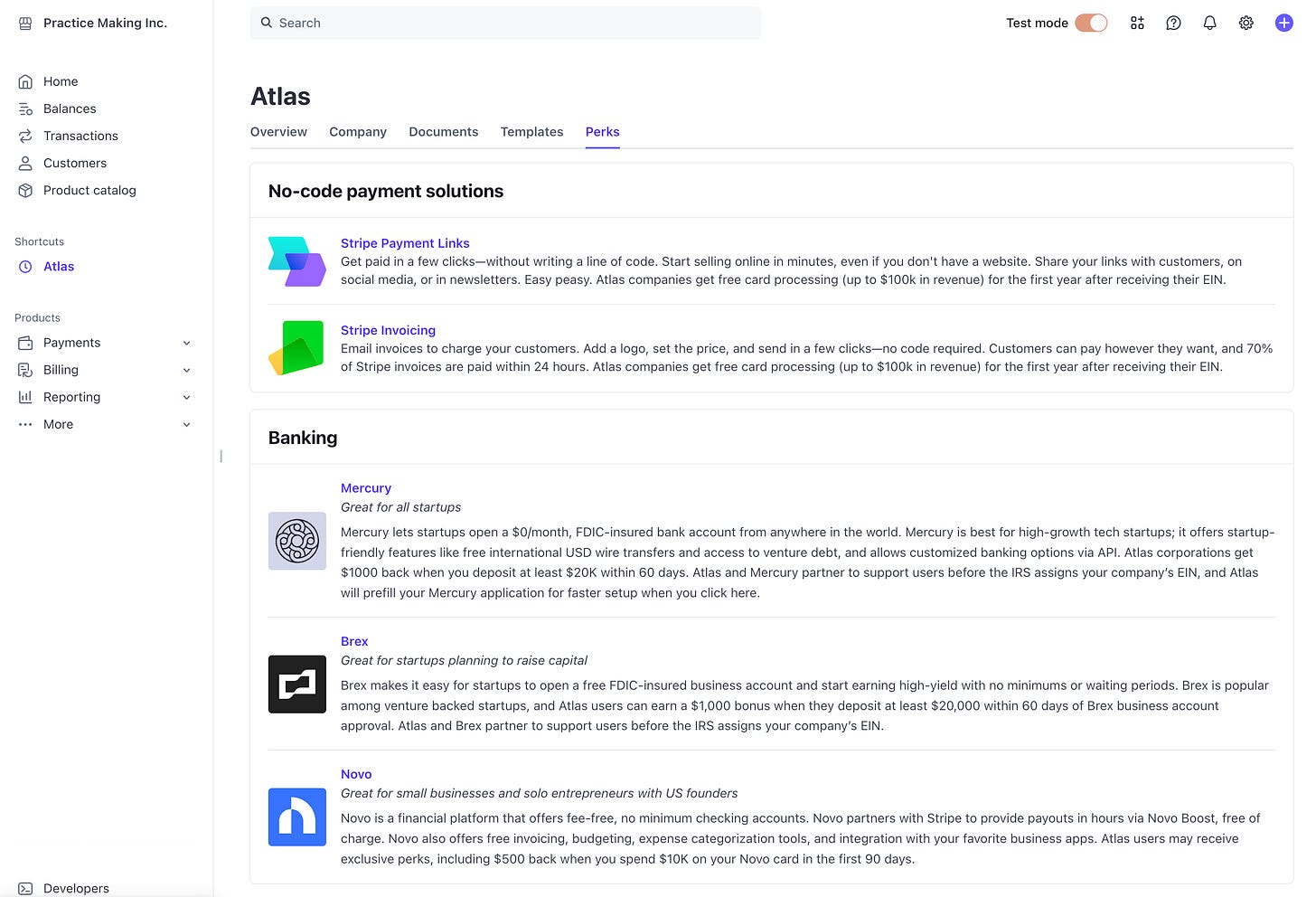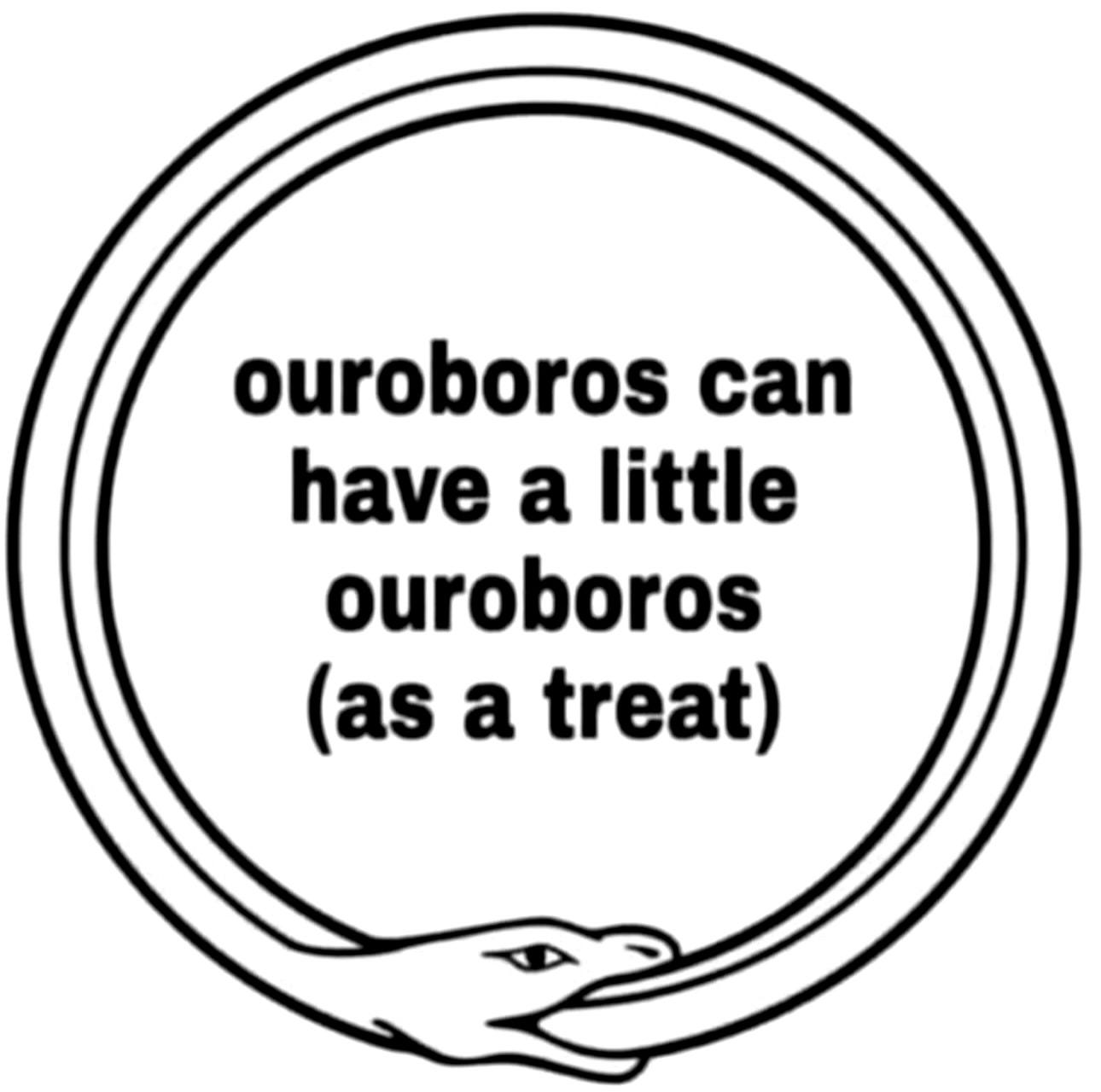The SaaS ouroboros
And an exciting announcement!
📯 Hear ye, hear ye: Big news from Practice land! We’ve officially raised a (small but mighty) Friends and Family fundraising round! 🎉 We’re so grateful and honored for this support—it’s a huge vote of confidence, and we couldn’t be more excited.
But if you’ve been following our journey, this might come as a surprise. When we started Practice, we intentionally set out to bootstrap the company and stay as lean as possible. Our goal has always been to build a great product and a lasting business that helps people create joy. We were hesitant to seek funding of any kind and wanted many active, engaged users before considering it.
But we’ve learned that even staying super lean comes with way more costs than we anticipated.
So, we decided to raise a small round for a few reasons:
As we approach our alpha launch, we’re seeing incredible market signals, appetite and interest from potential users, and having exciting conversations with experts. Signs are very positive!
We want to maintain momentum (while still staying really lean).
And, frankly, so we can stop paying out of pocket for the seemingly endless loop of Software as a Service (SaaS) products it takes to run this baby business.
One and two are pretty straightforward. But for #3, you might be wondering: How many SaaS tools could a lean, fledgling startup possibly need? Two? Four?
Oh, sweet summer child. Soooo many more. Storytime!
Our naive texting era
When Ben and I first started chatting about Practice, we were using text messages to share links and ideas. If this had been the early 2000s—when SMS cost $0.10 per message—it would have been a very expensive time for Practice. Even with free texting, though, it was not sustainable, in part because we had a fundamental challenge: Ben and I use different OSs.

I tolerated Ben’s green text (because I am not a bully), but as things started getting more real, relying on texts felt way too disorganized and onerous. So, we graduated to Slack. It was free and a huge upgrade from texting.
We also needed somewhere to keep our notes, so Ben set up a free Notion instance. We were cruising along—until one day, Notion let us know we’d “run out of free blocks” (their unit of content). I can’t recall the exact number we’d used, but it was apparently some amount that is Notion’s cue that users are locked in, switching costs are high, and it’s time to upsell. It worked. We paid.
It became the first of many SaaS subscriptions supporting our startup. 💸
SaaS begets SaaS
Next, we needed a name for the company. After some brainstorming, a quick domain and trademark search led us to a cheap domain (only $12/year somehow?). To put up a landing page and waitlist capture mechanism, we opted for Squarespace—another monthly fee.
Slack soon reached its free limit too, so we started paying for that as well. And then something amazing happened: a wonderful engineering leader joined the team. It was no longer just Ben and I. We had another SaaS mouth to feed. Slack and Notion for 3!
At this point, we were still using our personal email addresses which meant that IT and security felt like it was already off to a messy start. So we upgraded to Google Workspace for fancy, official @practicemaking.com email addresses and improved access control…another SaaS subscription.
Then came incorporation. We got advice to use Atlas to avoid hiring a lawyer to form our business entity, and it made the process painless. After we submitted a few forms, we ended up on a page of discounts for other SaaS products.
The SaaS ouroboros
Atlas’ Perks page officially introduced us to the ouroboros of SaaS—a circle of interconnected startup tools scratching each other’s backs and feeding off each other. Many of these products offer perks and discounts for others, creating an endless loop of self-referential subscriptions.
If you’ve driven from SFO into San Francisco, you’ve seen this hungry snake slithering across countless billboards for niche SaaS products, often targeting other (probably niche SaaS) startups with cryptic techspeak.
There’s no shortage of Reddit threads and Hacker News posts pointing out how startups in accelerator programs like Y Combinator often create products specifically for each other. Through a snarky lens, it has an almost Ponzi scheme-like vibe: they build tools for startups, sell them to other startups in their accelerator network, and thrive on this internal network effect.
Snark aside, I am grateful that these tools exist. It would be next to impossible to collaborate, learn, build, test and make progress on our company without them. But there is something a bit “ancient symbol for eternal cyclic renewal” about the whole thing, right?
Okay, enough SaaS sass 💁🏻♀️
Back to Practice!
Extreme Couponing: SaaS edition
I got advice to start a newsletter (not this Substack, but a monthly company overview—sign up if you haven’t already!). Squarespace has a built-in newsletter feature (free for a few sends 🤣), so I drafted our first email, loaded our contact list, and hit go. But I got an error: our newsletter needed a valid mailing address to comply with anti-SPAM laws.
I appreciate these consumer protections, but until this point, our business address was my home address. Not exactly what I wanted to put in the footer of an email newsletter, ya know? I mentioned this to Ben who replied:
you're not gonna believe this
but there's a saas subscription for this too
We weren’t trying to rent office space, so we looked into getting a business address via a virtual mailbox. In great news, we found a service on the Perks page with a discount, plus an additional 50% off for startups with less than $1M in revenue. SaaS on SaaS!
Now we’re prepping to deploy our alpha product, which needs hosting. Naturally, Atlas had a partnership with Amazon and a $5,000 AWS credit available with a discount code. We also opened a bank account—with yet another perk.
This is starting to sound like a sponsored post for Stripe Atlas, but I swear it isn’t. It’s more of a heads up that the Perks tab is basically a warning that if you incorporate a startup you will soon want ALL THE SaaS.
We now have discounts and perks from Atlas, our bank, our virtual mailbox, Notion, etc. so when we need a new SaaS product, we have to cross-reference to see which code to use from which service to get the best deal. It feels like grocery shopping with my dad when I was a kid, who was a champion of combining in-store specials and coupons (he would’ve crushed it on Extreme Couponing but has since moved his skills to eBay).
This snake costs money
All this SaaS stacked on SaaS almost seems comical, until you realize how expensive it is. These subscriptions ADD UP. We did the math: bootstrapping Practice without taking salaries, relying on the kindness of others, and staying as frugal as possible would still cost more than $10,000 over the next 18 months. Mostly in SaaS, plus a few small marketing tests and consultant fees.
In startup math, that’s not a ton of money. But in real person math, that’s more than couch cushion money. So we’re thrilled that our Friends and Family funding round garnered a lot of interest and we raised enough to cover our SaaS stack and then some. We will still stay super lean but can keep our momentum going.
And! Because we added money to our Mercury bank account within 60 days of opening it, AND used a code from Stripe when we set it up, we got a credit 🫠






